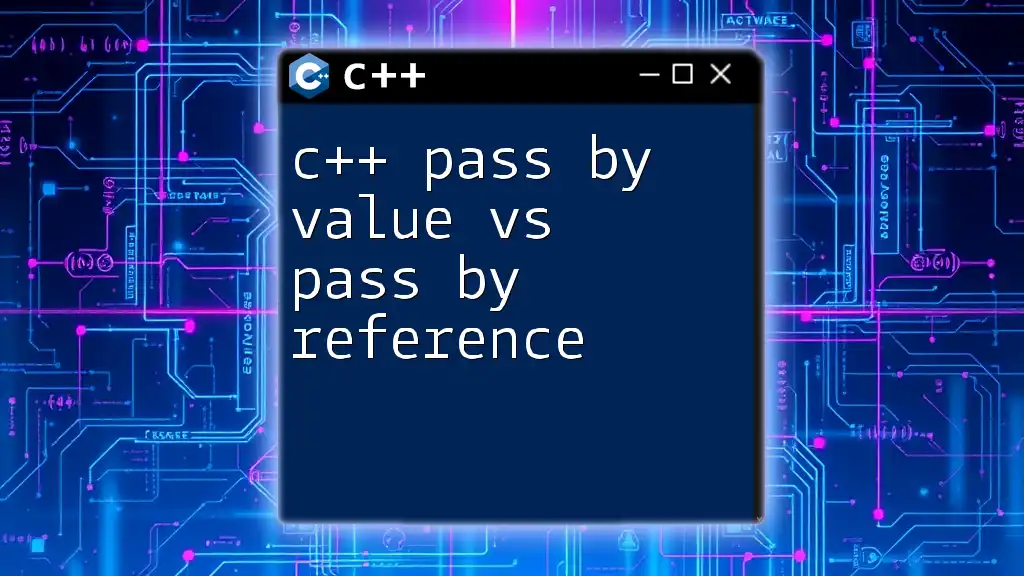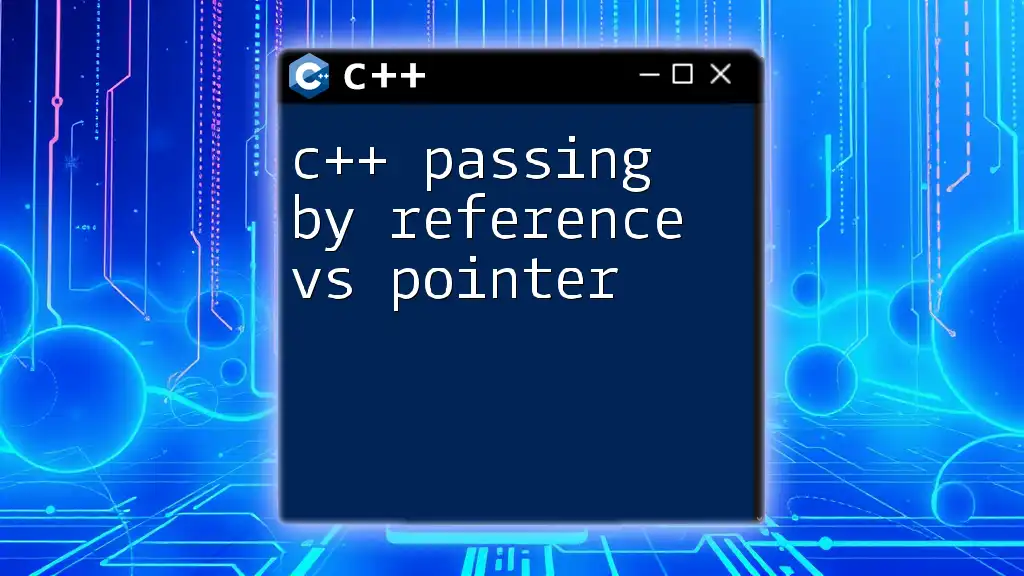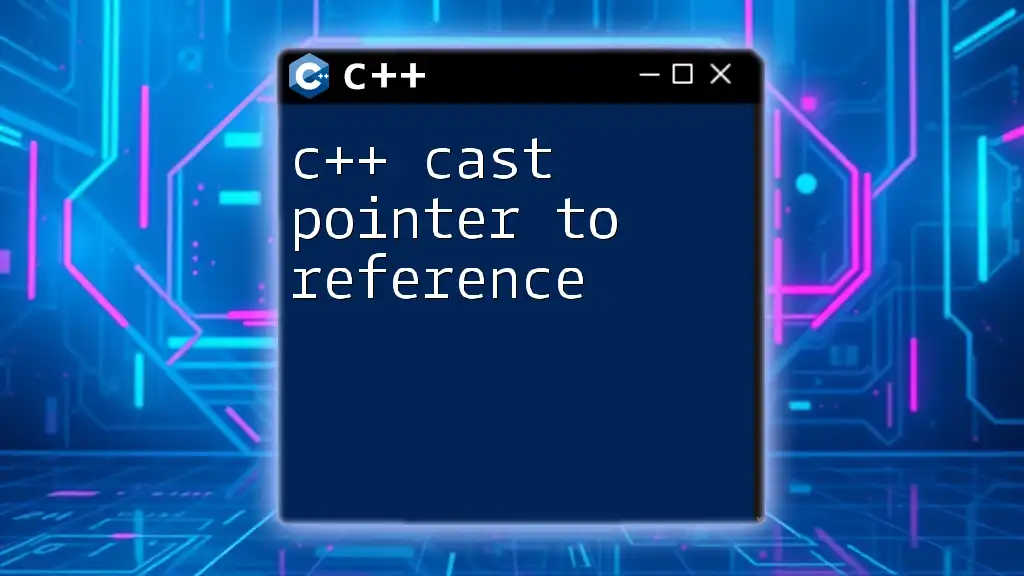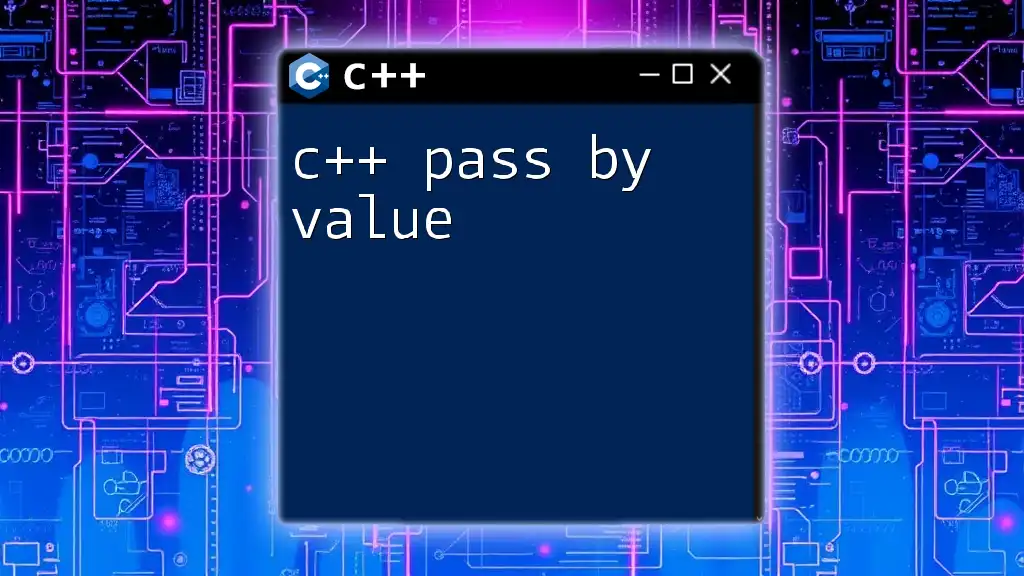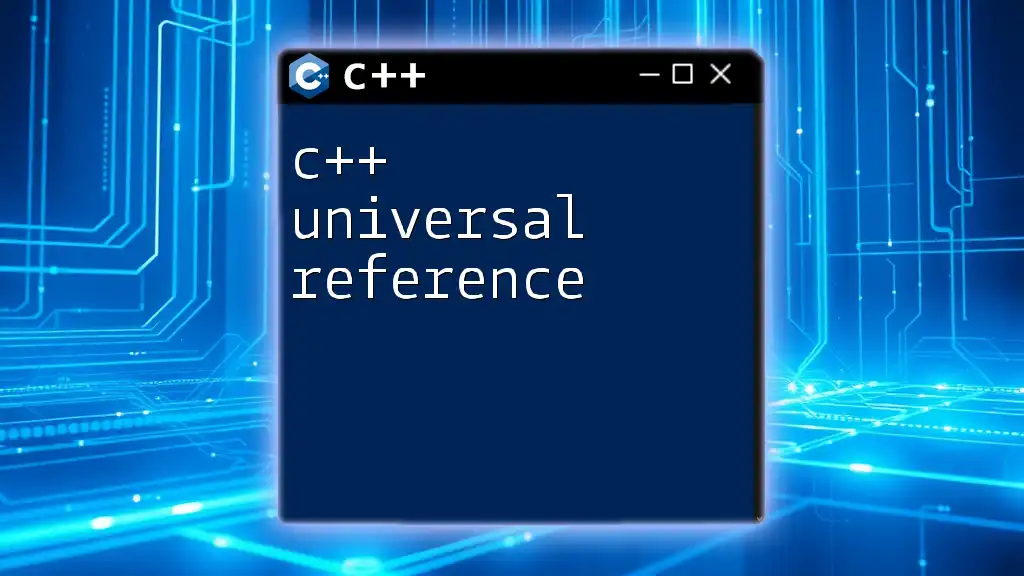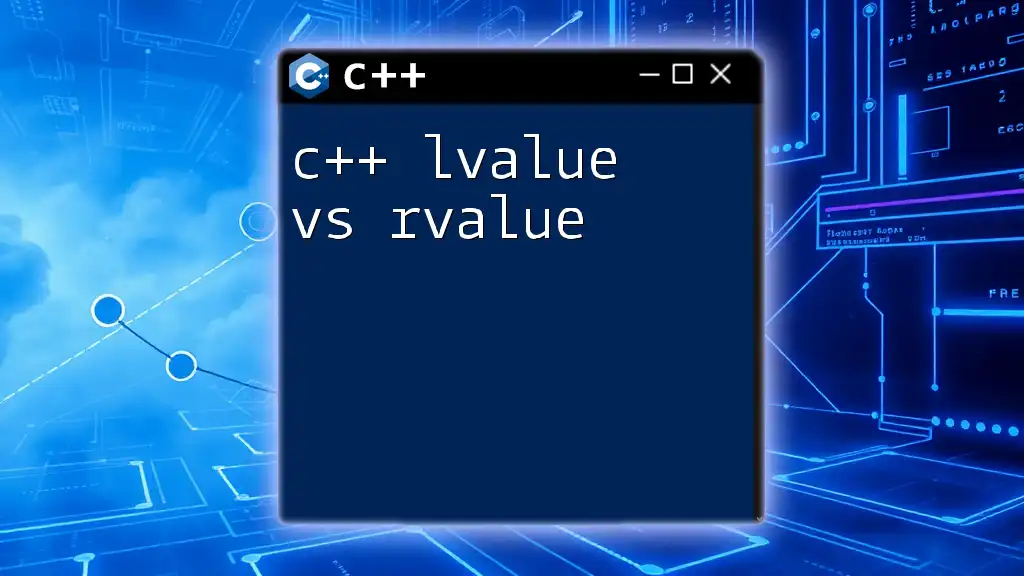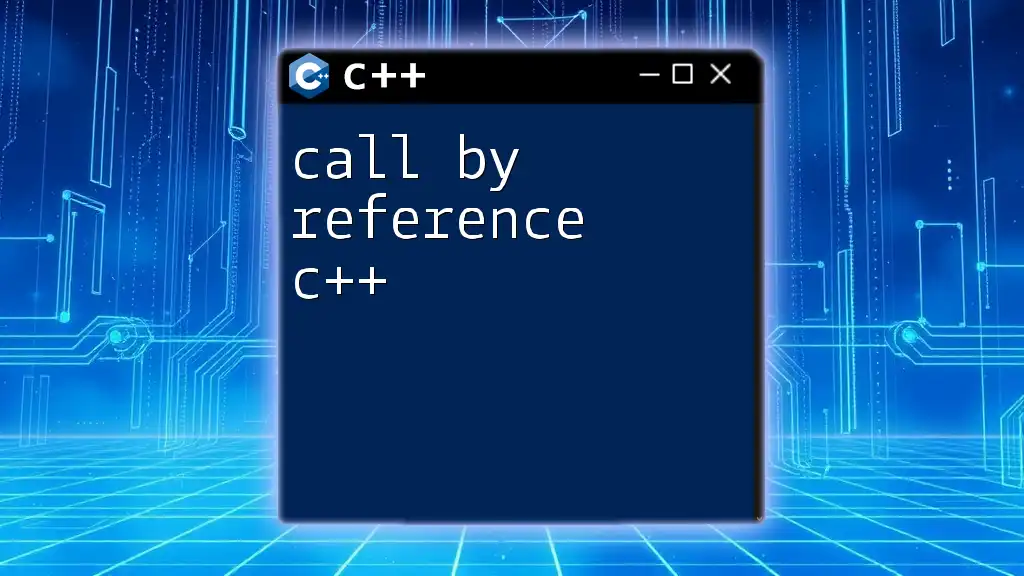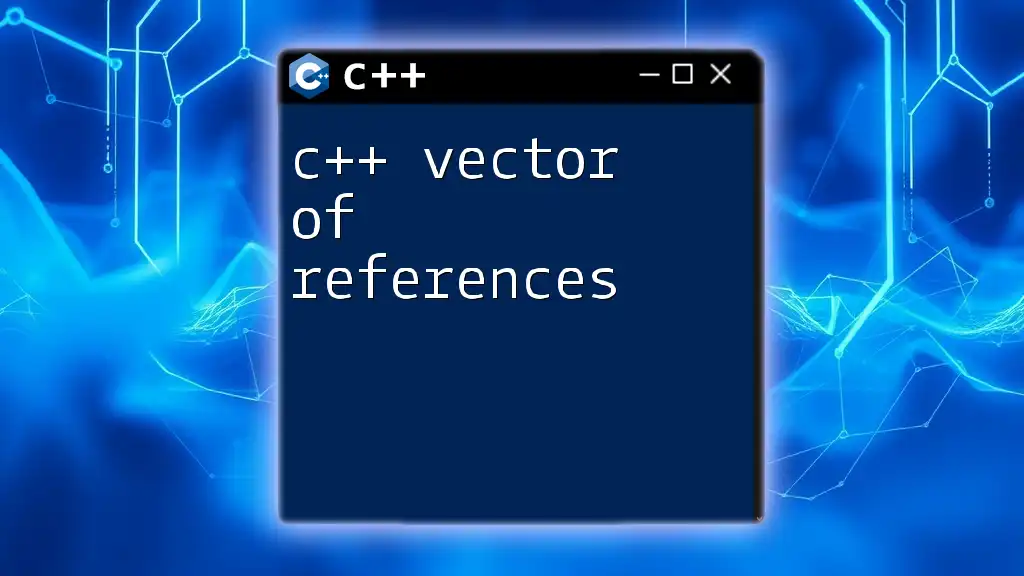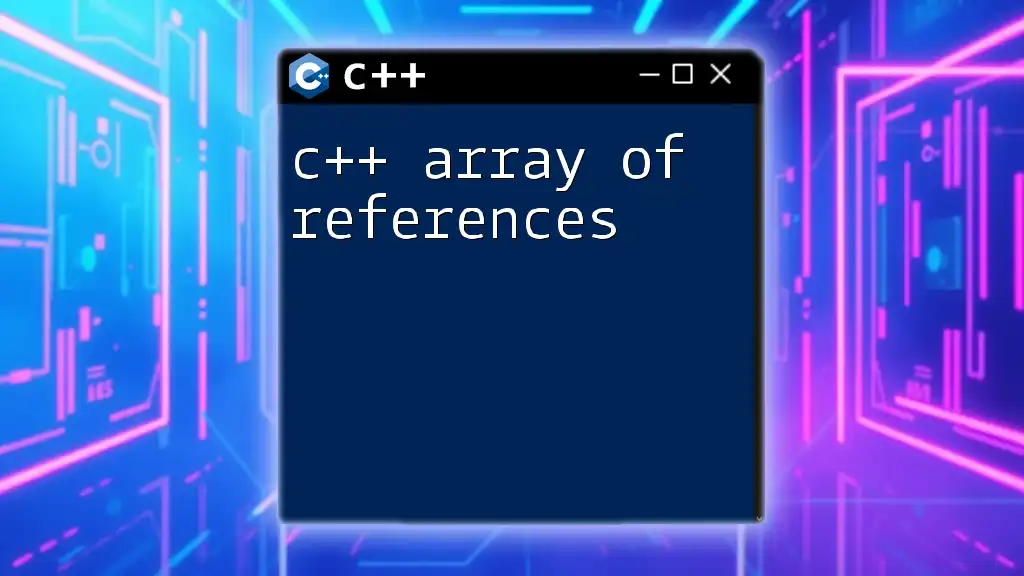In C++, "pass by value" creates a copy of the variable for the function, whereas "pass by reference" allows the function to access the original variable directly, which can affect the variable's value.
#include <iostream>
void passByValue(int a) { a += 10; } // modifies local copy
void passByReference(int &b) { b += 10; } // modifies original variable
int main() {
int x = 5;
passByValue(x);
std::cout << "Pass by Value: " << x << std::endl; // Output: 5
passByReference(x);
std::cout << "Pass by Reference: " << x << std::endl; // Output: 15
return 0;
}
What is Pass by Value?
Definition of Pass by Value
Pass by value means that when a function is called, the values of the arguments are copied into the parameters of the function. This implies that changes made to the parameters do not affect the original variables. Each function invocation gets its own copy of the arguments, safeguarding the original data from modification.
How Pass by Value Works in C++
In C++, when you pass a variable to a function by value, a new copy of that variable is created in memory. The original variable remains unchanged even if the function modifies the copy. This behavior relies on the concept of stack memory allocation, where each function call has its own stack frame.
Code Example of Pass by Value
#include <iostream>
using namespace std;
void modifyValue(int num) {
num = 10; // This will not affect the original value
}
int main() {
int originalValue = 5;
modifyValue(originalValue);
cout << "Original Value: " << originalValue; // Output: 5
return 0;
}
In this example, `originalValue` is passed to the `modifyValue` function. Inside the function, a new copy of `num` is created. Changing `num` does not change `originalValue`, which retains its value of 5.
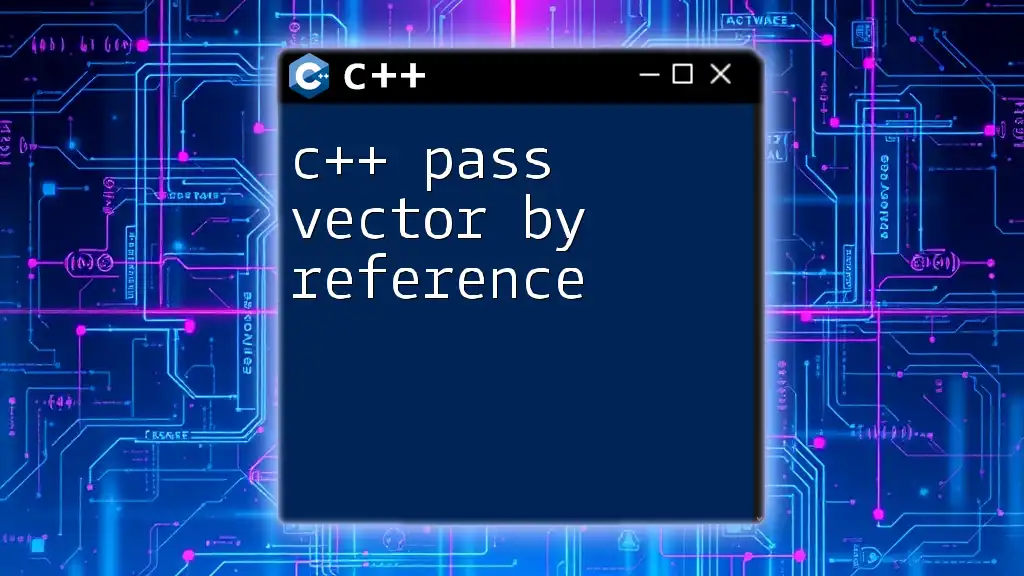
What is Pass by Reference?
Definition of Pass by Reference
Pass by reference allows a function to operate on the original variable instead of a copy. Instead of passing a copy of the variable’s value, you pass a reference (or alias) for that variable. This means any changes made to the parameter inside the function reflect in the original variable.
How Pass by Reference Works in C++
Passing by reference in C++ involves creating an alias for the original variable. When a function receives a reference as a parameter, both the original variable and the reference point to the same memory location. This avoids the overhead of copying data and allows modifications directly to the original variable.
Code Example of Pass by Reference
#include <iostream>
using namespace std;
void modifyValue(int &num) {
num = 10; // This will affect the original value
}
int main() {
int originalValue = 5;
modifyValue(originalValue);
cout << "Original Value: " << originalValue; // Output: 10
return 0;
}
In this case, `originalValue` is passed to the `modifyValue` function by reference. This means that `num` refers to `originalValue`. Consequently, changing `num` to 10 modifies `originalValue`, resulting in an output of 10.
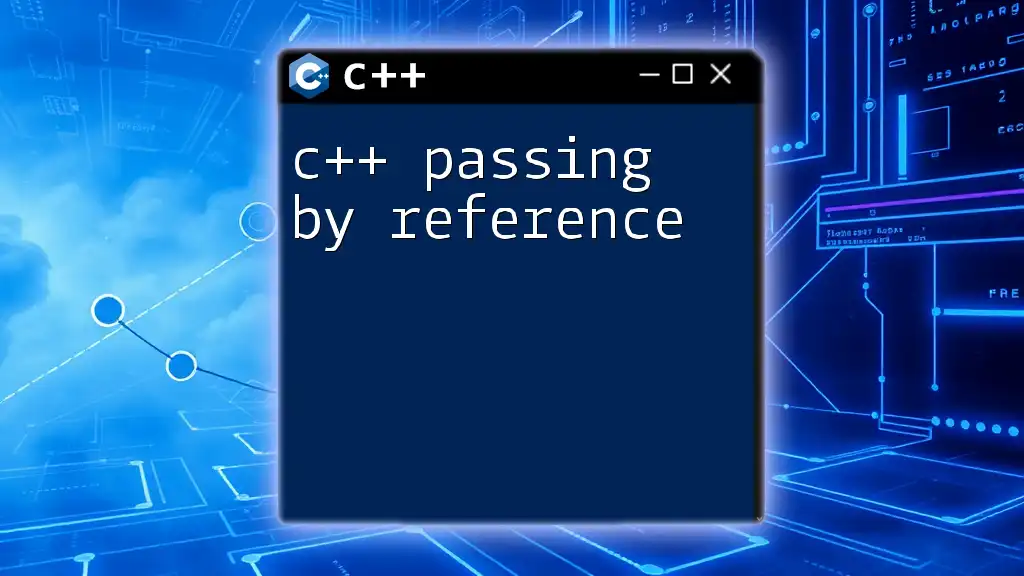
Pass by Value vs Pass by Reference: Key Differences
Memory Management
The primary distinction between pass by value and pass by reference lies in memory management. With pass by value, each function invocation gets its own copy of the variable, which can lead to higher memory usage with larger data types. Conversely, pass by reference operates directly on the original variable, reducing memory consumption and eliminating the overhead of copying large structs or classes.
Performance Considerations
Performance is another significant factor. When working with small data types like integers or characters, pass by value is usually efficient. However, when dealing with large data structures such as arrays or complex classes, pass by reference can lead to better performance, as it avoids the costly copying of data. Choosing the right method based on data size and function intent can improve overall application efficiency.
Safety and Bug Risks
Using pass by reference introduces the risk of unintentional modifications to the original variable. It’s crucial to consider whether a function could incidentally alter data that should remain unchanged. To mitigate this risk, it’s advisable to use const references for parameters that should not be modified. This practice ensures that you get the benefits of references while preventing unintended side effects.
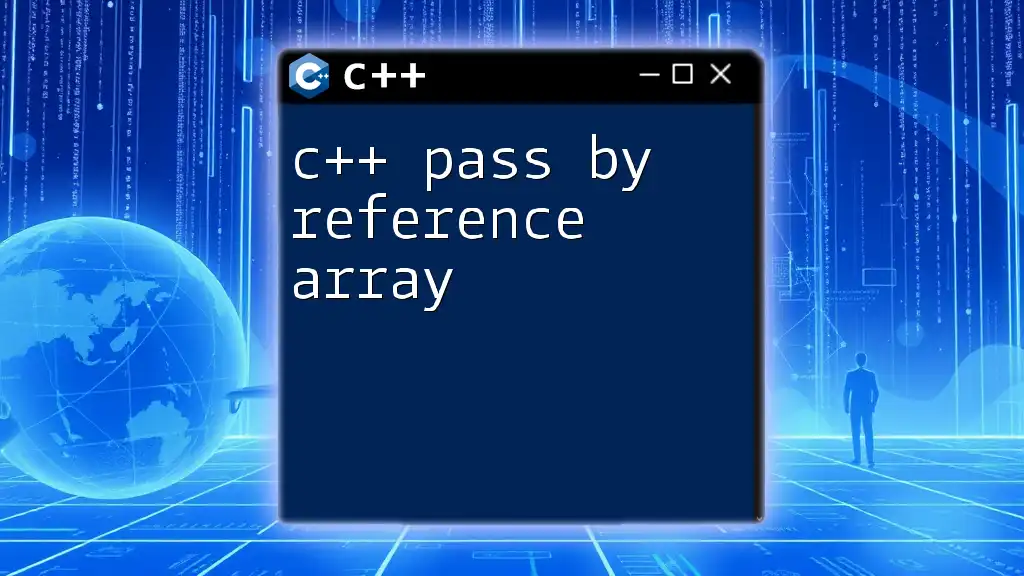
Use Cases: When to Use Pass by Value or Pass by Reference
When to Use Pass by Value
For short data types (like `int`, `char`, or `float`), passing by value is often appropriate. When you want to ensure that the original variable remains unchanged during the function execution, passing by value is the right choice. It encapsulates the data and avoids side effects, making the code easier to understand.
When to Use Pass by Reference
Use pass by reference for larger data types, such as arrays, vectors, or user-defined classes. If you want the function to modify the original data, pass by reference is essential. This approach is also useful for performance enhancements, as it reduces the load on the stack and minimizes copying overhead.

Best Practices: C++ Pass by Value and Pass by Reference
Using Const with Pass by Reference
A best practice when using pass by reference is to apply `const` to the parameter type. This tells the compiler and anyone reading your code that the function will not modify the parameter. It’s a good way to combine efficiency from passing by reference with the safety of pass by value.
void safeModifyValue(const int &num) {
// num cannot be modified, preventing accidental changes
}
Performance Tips
When designing functions, consider profiling your code to determine the best method for passing parameters. When the size of the data is small, passing by value can be faster. For larger structures, default to passing by reference due to the performance benefits. Avoid passing large data types by value without necessity.
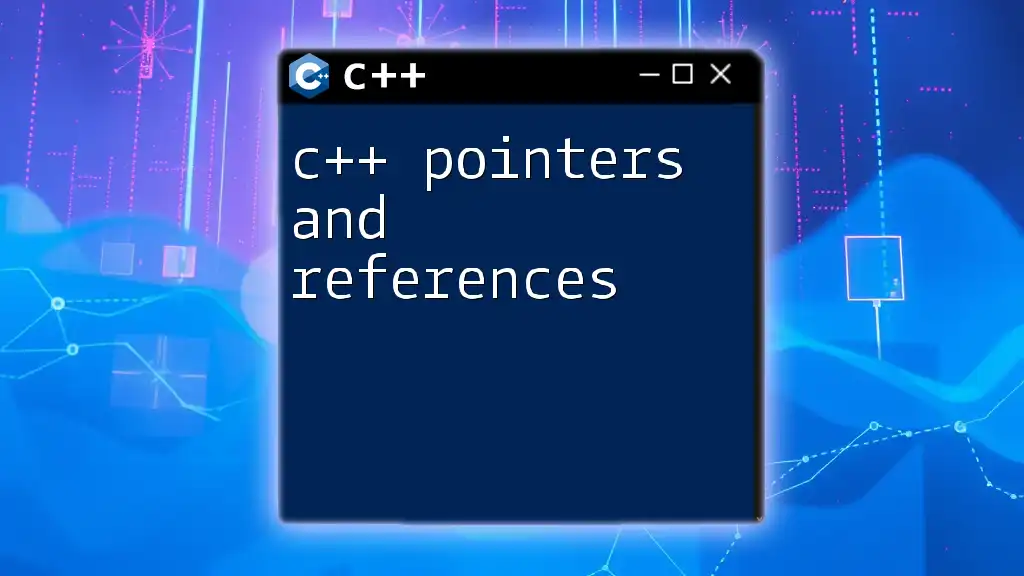
Conclusion
The decision on whether to use C++ pass by value vs pass by reference hinges on understanding their fundamental differences, memory implications, and behavior regarding data integrity. By carefully considering each method’s appropriate use cases and best practices, you can write more efficient, clear, and maintainable C++ code. Engaging with various examples and experimenting with different data types will also enhance your understanding and expertise in C++.

